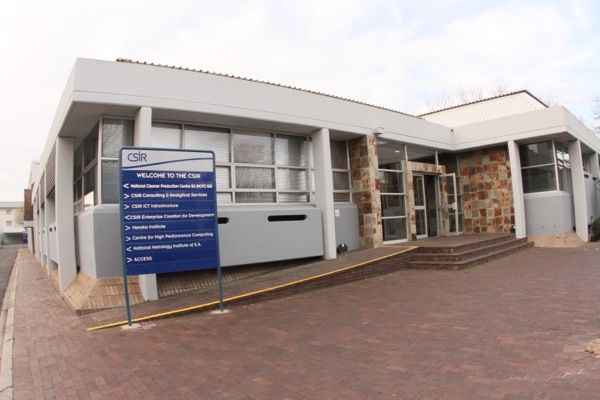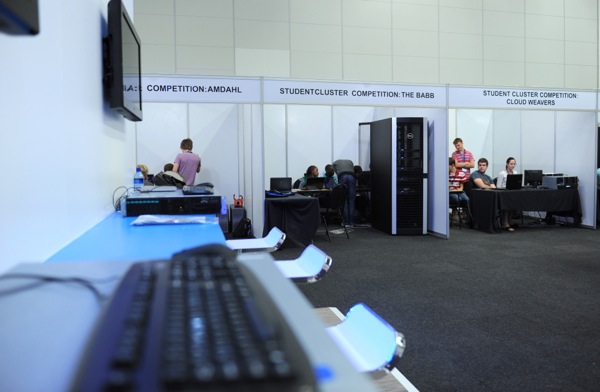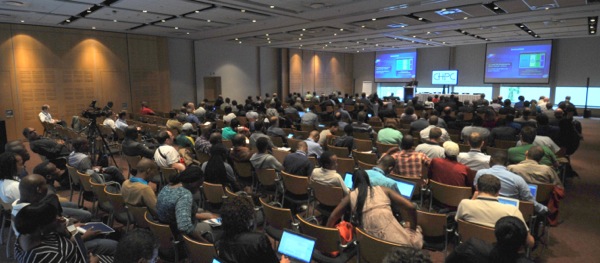By: Noxolo Moyake, CHPC

Increasing investment in research in many western countries is still a matter that sparks debate and maybe even controversy. But increasing research investment in Africa by an African government is a whole new ballgame. The continent continues to battle bread-and-butter challenges, but in 2006, South Africa saw research investment as a tool to drive social and economic development.
The GDP annual growth rate in South Africa averaged 3.08 percent from 1994-2014, reaching an all-time high of 7.10 percent in the fourth quarter of 2006. The government saw that the country required a GDP yearly growth rate of 6 percent to become globally competitive and to significantly improve the quality of life of South Africans. As a result, the government planned to increase its expenditure on research and development to 1 percent of GDP by 2010.
The idea was to increase the nation’s capacity to create and disperse new knowledge. To do this, South Africa needed to make an investment in how it conducted research, and in developing infrastructure. In particular, new instruments were required to ensure that the country not only had the requisite capacity to generate the levels of new knowledge to respond to the challenges highlighted earlier, but also to firmly cement South Africa’s position as an attractive destination for science and technology endeavours.
The Centre for High Performance Computing was launched in 2007 and was subsequently supported by the South African Research Network to connect researchers from a number of universities and research councils and to enable South African researchers to contribute to regional and international research efforts. The two bodies formed what is known as the South African Cyberinfrastructure.
Once a national resource of this magnitude is established, it must be promoted and used. Below are some of the strategies the CHPC used to encourage and develop use of HPC in South Africa.

Flagship Projects (2007-2014)
CHPC grants two-year funding to eleven flagship projects across a number of research domains. Each project’s aim is to solve a major scientific or socio-economic challenge in South Africa and in Africa, in general, using the centre’s computational resources. The use of HPC resources provided training and exposure to parallel computing and set the ground for the development of additional HPC capacity in South Africa. In addition, the flagship projects advanced research activities in these specific domains, and accelerated the building of HPC capacity. Students were central to these developments.
These 11 flagship projects addressed the following topics:
• Computational space physics and astrophysics
• Large-scale simulations of energy storage materials
• Regional coupled ocean-atmosphere modeling
• A South African high performance multi-physics computational fluid dynamics solver
• Electromagnetic computer simulation for the Meerkat and SKA
• Modelling HIV-1 evolution
• Modern South African astronomy and cosmology: confronting the simulates and the observed universe
• Monte Carlo simulations of technological tools for quantum information processing and communication
• Nuclear collision and data grid for the physics community
• Biomechanics of myocardial infarction and the development novel therapies
• Computational research initiatives in imaging and remote sensing
Human Capital Development
The centre offers internships, studentships and year-round training courses to its users to ensure they make optimal use of the resources. The CHPC Winter School, usually attended by about 100 students, is a favourite among computer science and computer engineering students across South African universities.
The school introduces parallel programming courses for high performance computing, and covering the following topics:
• Introduction to HPC hardware, systems and techniques
• Multicore programming with OpenMP
• Using message passing (MPI) on cluster supercomputers
• High performance co-processors
• Rapid prototyping for HPC with Python
Occasionally the CHPC will invite international pioneers and innovative developers in the HPC field to present workshops and lectures in South Africa. These lectures are open to all researchers and HPC users to attend.
In 2012 the centre introduced the Student Cluster Competition as a component of its Winter School. Students are introduced to parallel programming and taken through the various aspects of the competition. They are then divided into groups and given an assignment that determines which groups will proceed to the national competition that takes place at the annual CHPC National Meeting in December. The winning national team proceeds to represent the country at the lSC Student Cluster Challenge held by the International Supercomputing Conference (now known as ISC High Performance), in Germany each year.
South Africa has won the ISC Student Cluster Challenge twice in a row (2013 and 2014). The students who have come through this program have gained a good understanding of HPC and have become a source of young talent for the growing HPC industry in the country and the African continent.

CHPC National Meeting
The annual meeting serves as a showpiece of the work done by the centre each year through the research that is performed by the users. It also provides a platform for users to gain knowledge of the advances in HPC through carefully selected plenary speakers. Furthermore, the meeting that also provides opportunity for users to provide feedback on the centre’s infrastructure and to undergo training.
The last four years have seen a tremendous growth in the stature of the meeting. Over this time period, the number of registrations, the quality of research contributions and international speakers, the number of sponsorships and number of students the sponsorships allow the centre to support have improved significantly. The meeting has also served as a platform for the Southern African Development Community (SADC) to gather and develop a framework for the establishment of a regional HPC centre, where the 15 member states plan to combine resources and conduct regional research collaborations on areas of mutual challenges.

The Future
CHPC has provided the groundwork in ensuring that HPC is available to industry and academic research in South Africa. This has been extended to the African continent. At the same time, the centre has provided a venue for the development of HPC skills. In the future, CHPC will be a critical resource for tackling the big scientific challenges of the continent, such as the Square Kilometer Array (SKA), climate research, and data-intensive applications in the big data regime. For these challenges, significant growth in the infrastructure will have to be realized. In return, these investments will be reciprocated with significant benefits accruing to socio-economic development in the region.
